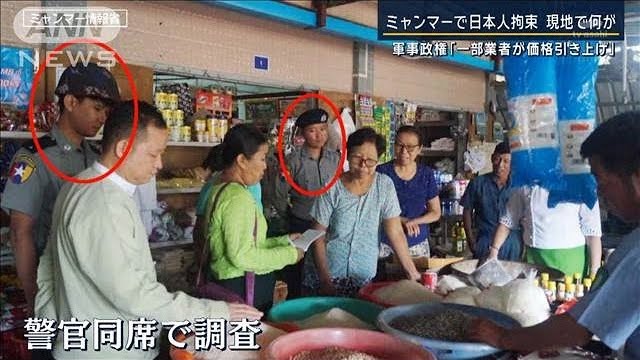YANGON, Jul 03 (News On Japan) - It has been three years since Myanmar experienced a military coup. Although not a major tourist destination for Japanese citizens, over 300 Japanese companies have established operations in Myanmar.

Aeon Group, which operates nine stores in Myanmar, has found itself entangled in the military regime’s hardline measures. Myanmar's state television reported that authorities detained four retail executives, including a Japanese national. Aeon confirmed that one of those detained is Hiroshi Kasamatsu, 53, the head of the product division at Aeon Orange. The reason for the detention was reportedly selling rice at a price higher than the regulated rate.
In February 2021, Myanmar's military claimed electoral fraud in the general elections and staged a coup. Aung San Suu Kyi, a leader of the democratization movement, was detained, and the military took full control.
Citizens have shown resistance, but the military has suppressed these efforts with force. The military has attacked pro-democracy groups and ethnic minorities across the country, leading to the displacement of millions. Over three million people are now internally displaced.
One of the major issues facing the people of Myanmar amid this political turmoil is soaring prices.
A taxi driver commented, "With the rising gasoline prices, there are fewer customers. The fare increase has also reduced the number of customers, leading to decreased income. Despite lower income, the cost of necessities has skyrocketed."
Footage from a supermarket in Yangon, filmed by a Japanese resident, shows a pack of eggs priced at 240 yen, up from the previous 130 yen.
A resident of Yangon in their 50s remarked, "Prices have doubled or tripled over the past year. It feels like a sudden increase. Rice prices have more than doubled. The best rice comes from the northern region of Shan, which is now a conflict zone. It used to be popular, but it’s no longer available."
The coup and subsequent crackdown have triggered this surge in prices, with the military regime shifting the blame onto businesses.
The State Administration Council stated, "While the nation strives for economic stability and development, some businesses are causing market turmoil by raising rice prices."
On June 25, a market in Yangon saw long lines as a rice industry group offered discounted prices. According to local media, a few days earlier, leaders of the industry group were detained for not adhering to price controls. Authorities are now conducting on-site inspections with police to ensure rice is sold at regulated prices.
The military regime appears to be using pressure and detentions to force price reductions, possibly to divert public dissatisfaction. They have even released propaganda videos.
The Myanmar Ministry of Information announced, "We are grateful that related parties and the government are selling around 2 kilograms of rice for 3,000 kyat (about 150 yen) so that low-income families can purchase it at affordable prices."
A rice dealer commented on the series of detentions, "This won't solve the problem. Prices are rising across the board, so rice prices will also increase. Producers and labor costs require price adjustments. It's unfair to control only the rice market and detain individuals."
Source: ANN















